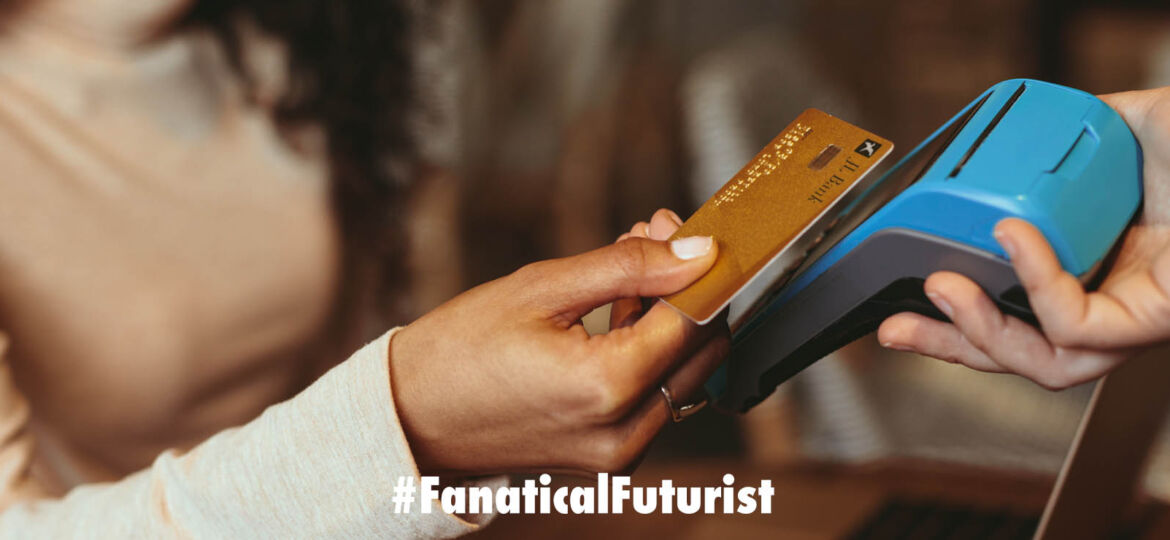
WHY THIS MATTERS IN BRIEF
Quantum computers could hack 70% of the world’s encryption faster than you can read this article, so our payment cards need to be ready.
 Love the Exponential Future? Join our XPotential Community, future proof yourself with courses from XPotential University, read about exponential tech and trends, connect, watch a keynote, or browse my blog.
Love the Exponential Future? Join our XPotential Community, future proof yourself with courses from XPotential University, read about exponential tech and trends, connect, watch a keynote, or browse my blog.
In Q1 2021, Mastercard saw 1 Billion more contactless transactions compared to the same period in 2020. And in Q2 2021 45% of all in person checkout transactions globally were contactless.
So, to cope with explosion of contactless payments and to manage the security of the ever popular payment method Mastercard have announced that they’ve developed a new type of contactless card that incorporates Quantum Cryptography that’s designed to protect against hacks from current classical computers and future quantum computers.
The Future of Financial Services, by keynote Matthew Griffin
The new card uses standards specified by EMVCo known as the EMV Contactless Kernel Specifications which work with all existing payment terminals while also providing higher levels of security that are “future proof and hack proof” according to the company.
When quantum computing technology reaches a point known as quantum supremacy, which many say it’s already passed, where the machines can perform near errorless calculations impossible with even the largest and most powerful supercomputers they’ll be able to crack over 70% of all existing global encryption – meaning specific quantum security will be required. And experts expect thisto be reached by 2025 to 2027,with some experts at IBM believing it’s more like late 2024.
As a result Mastercard, who’s trying to stay ahead of this tech induced armogedden, says their new card is a “significant milestone that brings quantum-era security and privacy protection to card payments.”
It will also come with next-generation algorithms and cryptographic keys that have been designed to be fast, ensuring a contactless payment happens in under half a second, along with enhanced privacy protections to reduce the amount of account information shared between the consumer device and merchant terminal.
There are predicted to be more than 12.5 Billion contactless payment devices in active use by 2027 and transactions made using these devices will top $10 Trillion globally.
Mastercard says it expects to begin the transition to these new cards at pace in 2023, providing the specifications for various card manufacturers.
















